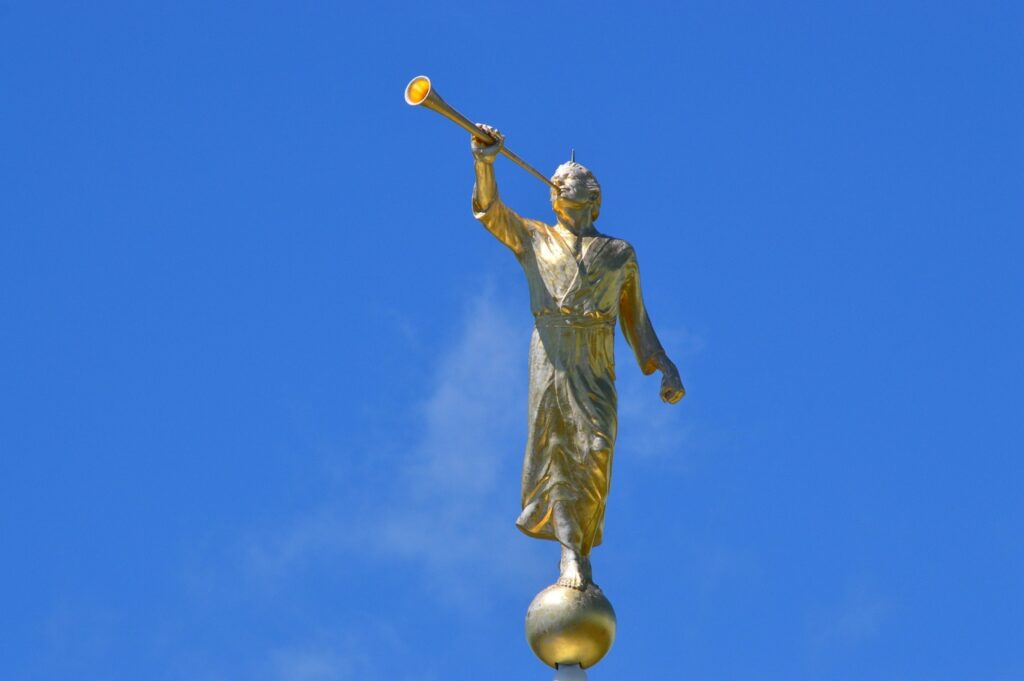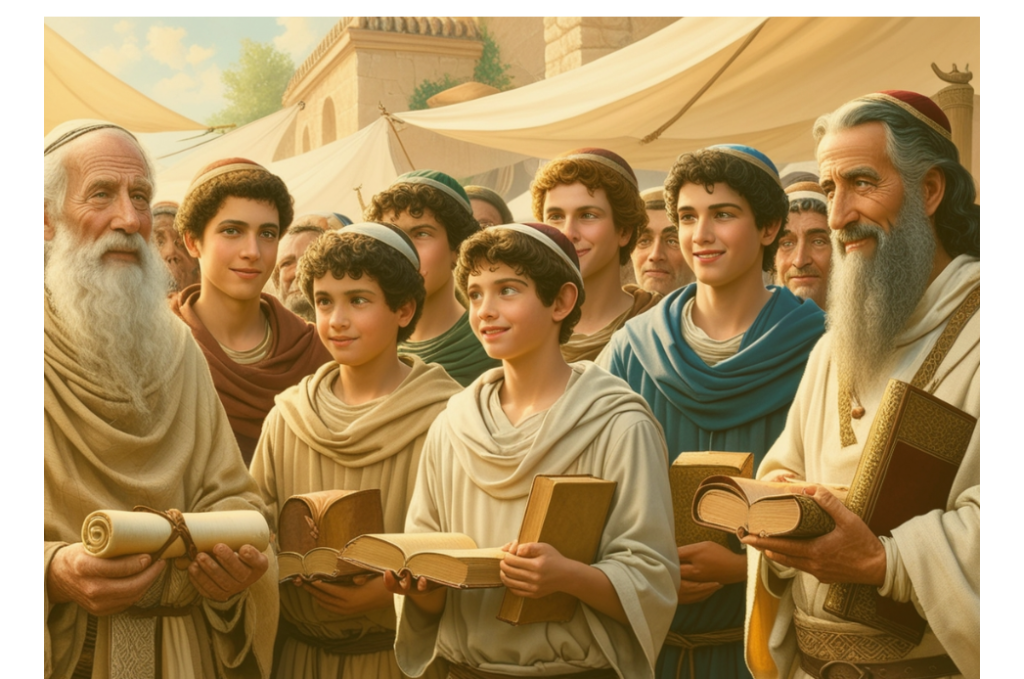Introduction
In a recent Twitter thread, I posed the question: “What is a Christian?”—specifically inviting responses from members of the LDS Church. You can find it Here.
In this article, I want to summarize the post and reflect on the responses that followed.
The question “Are Mormons Christian?” stirs deep emotion and debate across both religious and academic circles. While The Church of Jesus Christ of Latter-day Saints (LDS) strongly claims its identity as a Christian faith, many other Christian denominations—including Catholics, Protestants, and Eastern Orthodox—do not accept this classification due to fundamental theological differences.
Therefore, I pose this as a genuine challenge to my LDS readers—not to provoke, but to invite thoughtful reflection:
If you claim to be a Christian, how do you define what that means? And does your definition align with historic, biblical Christianity?
Okay but, Why Are the LDS Often Considered Non-Christian?
Beyond common definitions, there are specific reasons many traditional Christians do not recognize Mormonism as a Christian denomination. For example:
The LDS Church rejects all other Christian baptisms as invalid. [1]
They assert that all other churches fell into apostasy after the apostles. [2]
They teach the doctrine of angels once being human. [3]
Despite not meeting the biblical definition in Acts 1:21–26, they claim to have living apostles. [4]
This post isn’t meant to mock or belittle LDS beliefs, but to examine a serious and important question: What does it actually mean to be a Christian? And, by that standard, do LDS beliefs fall within the scope of historical Christianity?
Defining “Christian”: Why It Matters
Before we can debate whether a group qualifies as “Christian,” we must define the term. But that’s not as easy as it sounds. Here’s why:
- Too Broad a Definition risks including groups that historically or theologically don’t belong under the Christian umbrella.
- Too Narrow a Definition risks a No True Scotsman fallacy—arbitrarily excluding anyone who doesn’t match a specific modern interpretation.
- Definitions Must Apply Across Time — a Christian definition that would exclude the apostles or early church members is obviously flawed.
- Definitions Should Be Recognized Across Traditions — if the majority of Christian groups reject a certain definition, it’s worth rethinking.
Let’s look at some frequently cited definitions and how they hold up when applied across different groups:
1. “A Christian Believes in Christ’s Crucifixion, Death, and Resurrection”
Problem: Jehovah’s Witnesses believe Jesus died and was resurrected, but deny it was a bodily resurrection—something most Christians affirm. So if you believe Jesus resurrected bodily—Jehovah’s Witnesses would not meet this definition.[5]
So if LDS members believe Jehovah’s Witnesses aren’t Christian because of this, then why do they expect full inclusion for themselves, despite their own theological differences? Why are they open to excluding other “Christian” groups but not themselves?
2. “A Christian Is One Who Worships Jesus”
Problem: Jehovah’s Witnesses don’t worship Jesus, and many exclude them from Christianity on those grounds.[6]
But this raises a deeper question: What exactly is worship?
If the LDS define worship as participation in temple ordinances, holding priesthood offices, or specific rituals like baptism for the dead—then they’ve created a definition that excludes most of Christianity, including many denominations that have existed for centuries.
3. “A Christian Is One Who Follows The Teachings of Jesus”
Problem: Muslims also claim to follow the teachings of Jesus, considering him a prophet and Messiah. So do Latter-day Saints.
This makes the definition subjective—who decides what Jesus’ “true teachings” are? And one may state, “But Muslims don’t call themselves Christian.” That’s true—but it misses the point. Labels don’t define inclusion. This is known as an Equivocation Fallacy—assuming that the label someone uses determines whether they meet the actual definition.
What Is A Christian?
Let’s approach this from a different angle. Perhaps the best theological marker for identifying a Christian is this:
A Christian is someone who does not subject Jesus to the Father in nature or divinity.
In other words, a Christian believes Jesus is fully divine and equal in nature to the Father, even if he submits to the Father functionally. Note this is not an official definition, it is simply one I subjectively hold. Again, the challenge of this question is to request the LDS member to define what a Christian is. Next lets see if this definition holds up.
What Does the New Testament Say?
Passages Affirming Jesus’ Equality with God:
- “The Word was God.” (John 1:1)
- “At the name of Jesus every knee should bow.” (Philippians 2:10–11)
- “All authority in heaven and on earth has been given to me.” (Matthew 28:18)
Passages Showing Functional Subordination:
- “The Father is greater than I.” (John 14:28)
- “The Son himself will be made subject to him.” (1 Corinthians 15:28) •
- “I do nothing on my own.” (John 8:28)
These do not imply Jesus is lesser in divine nature—only that he submits to the Father’s will, especially in his earthly ministry.
Conclusion: What Makes a Christian?
Based on scripture, tradition, and reasoned theology, Christians affirm that:
- Jesus is divine in nature
- Jesus is worthy of worship
- Jesus shares the Father’s glory and authority
Analyzing Responses from X (Twitter)
As this discussion circulated on social media, especially on X (formerly Twitter), several LDS and non-LDS users engaged with the question. I’ll be adding highlights and summaries of their responses in this section as they come in.
Some key questions to look for in the replies:
Jacob Hansen from Thoughtful Saint on youtube said: “Someone who believes Jesus rose from the dead as the savior of the world and is who the New Testament claims he is”
I responded with the following in hopes of a thought-provoking discussion, but to no avail:
“Jacob thanks for the response, but this definition is very problematic.
1. What do you mean by “rose from the dead” ?
Do you mean bodily rose form the dead? If so you have excluded JW from your definition. Note if you are including spiritual resurrection, you are including a category the New Testament does not teach.
2. “Is who the New Testament claims he is”
This begs the question what does the New Testament claim about Jesus? If the New Testament teaches jesus is one of three gods, then you’ve excluded much of Christianity. If the New Testament teaches Jesus is a spirit child of heavenly mother and Heavenly Father then you’ve excluded much of Christianity. Please revise.”
Other Users have added subjective definitions In attempt to answer:
“Here is my take. Christians are disciples of Jesus Christ. It doesn’t matter to me if others don’t think I’m Christian. All that matters is what Christ thinks of me. He is our only judge. And I wouldn’t blaspheme God by presuming I was a better judge of men’s hearts than Him.”
“I would say that members of The Church of Jesus Christ of Latter-day Saints are Christians according to the broad definitions of the term Christian. We are not Christians by many or most of the more narrow definitions of the term, BUT we have overlapping and matching beliefs to a large degree with the belief systems of many of the religions that are Christians by the narrow definitions. We would be better referred to as a different category of Christians as opposed to being termed as not Christian since this can appear to mean that we are not to be considered Christian by any definition of the term. When adherents to churches that fit the narrow definition of Christian convert and are baptized as members of The Church of Jesus Christ of Latter-day Saints, they do not see themselves as leaving Christianity, but rather as joining the church within Christianity that preaches and practices the full and restored Gospel of Jesus Christ.”
Stay tuned—this section will be updated with key insights from the community.
Foot Notes
[1] The LDS Come unto Christ article states the following when asked why a person needs to be baptized twice: “Baptisms must be performed by proper priesthood authority and in a manner consistent with how Jesus was baptized (by immersion). Proper baptism is a prerequisite for membership in The Church of Jesus Christ of Latter-day Saints, so previously baptized people are baptized again if they wish to join.” It also notes: “Latter-day Saints believe that baptism must be performed by someone who holds proper priesthood authority. That authority directly from Jesus Christ was returned through the restoration of His Church.” https://www.churchofjesuschrist.org/comeuntochrist/uk/beliefs/baptism
[2] “During the Great Apostasy, people were without divine direction from living prophets. Many churches were established, but they did not have priesthood power to lead people to the true knowledge of God the Father and Jesus Christ. Parts of the holy scriptures were corrupted or lost, and no one had the authority to confer the gift of the Holy Ghost or perform other priesthood ordinances.” https://www.churchofjesuschrist.org/study/manual/gospel-topics/apostasy?lang=eng
[3] See the LDS Guide to the Scriptures on Angels. https://www.churchofjesuschrist.org/study/scriptures/gs/angels?lang=eng. Furthermore, D&C 129:1-3 says: “There are two kinds of beings in heaven, namely: Angels, who are resurrected personages, having bodies of flesh and bones—For instance, Jesus said: Handle me and see, for a spirit hath not flesh and bones, as ye see me have. Secondly: the spirits of just men made perfect, they who are not resurrected, but inherit the same glory.”
Additional Evidence: 1. Joseph Smith claimed that it was an angel(Moroni, the last prophet of the Book of Mormon) who directed him to the golden plates
that were the source of the Book of Mormon. Joseph Smith History 1:30–34 (Pearl of Great Price). 2. He claimed that an angel (John the Baptist) restored the Aaronic priesthood Doctrine and Covenants 13:1. See the heading: “The ordination was done by the hands of an angel who announced himself as John, the same that is called John the Baptist in the New Testament.” 3. Three angels (Peter, James and John) restored the Melchizedek priesthood. D&C:27 says “which I have sent mine angels to commit unto you“. 4. Mormon leaders have also described angels in numerous ways. Brigham Young claimed, “Angels are those beings who have been on an earth like this, and have passed through the same ordeals that we are now passing through…They are persons who have lived upon an earth, but did not magnify the Priesthood in that high degree that many others have done who have become Gods, even the sons of God. Human beings that pertain to this world, who do not magnify or are not capable of magnifying their high calling in the Priesthood and receive crowns of glory, immortality, and eternal lives, will also, when they again receive their bodies, become angels and will receive a glory” (Journal of Discourses, 9:102). 5. This Article from mrm.org shows the following:“What are angels?” LDS Seventy B. H. Roberts asks, “They are intelligences of the human species. Many of them are offsprings of Adam and Eve. That is they are men, who have, like Enoch or Elijah, been translated; or, like Jesus Christ, been raised from the dead; consequently they possess a material body of flesh and bones, can eat, drink, walk, converse, reason, love, fight, wrestle, sing, or play on musical instruments” (The Mormon Doctrine of Deity, pg. 256). 6. LDS Apostle Parley P. Pratt wrote, “Angels are of the same race as men. They are, in fact, men who have passed from the rudimental state to the higher spheres of progressive being…They have not a single attribute that man has not. But their attributes are more matured, or more developed, than the attributes of men in this present sphere of existence” (Key to the Science of Theology, 1978 Deseret Book reprint, pg. 69). On page 21 of the same book, Pratt included God in the equation. He wrote, “God, angels, and men are all of one species, one race, one great family, widely diffused among the planetary systems as colonies, kingdoms, nations, etc.”
[4] “Just as Jesus Christ called and sent His Apostles forth to represent Him, today’s Apostles are given the role to spread the gospel of Jesus Christ throughout the world.” https://www.churchofjesuschrist.org/learn/quorum-of-the-twelve-apostles?lang=eng. The Requirements for Biblical Apostleship: MUST have accompanied them during ALL the time that the Lord Jesus went in and out among us. MUST have been with them from the beginning, the baptism of John, until the resurrection. MUST have been a witness to his resurrection. This is why LDS apostles are said to be witnesses to Jesus’s Name. This is possibly another area where an LDS member would say the Bible is corrupted/mistranslated if pressed on the point. See: D&C 107:23 “The twelve traveling councilors are called to be the Twelve Apostles, or special witnesses of the name of Christ in all the world—thus differing from other officers in the church in the duties of their calling.”
[5] “Jesus’ own words showed that he would not be resurrected with his flesh-and-blood body”
[6]“Accordingly, true Christians do well to direct their worship only to Jehovah God, the Almighty.”



